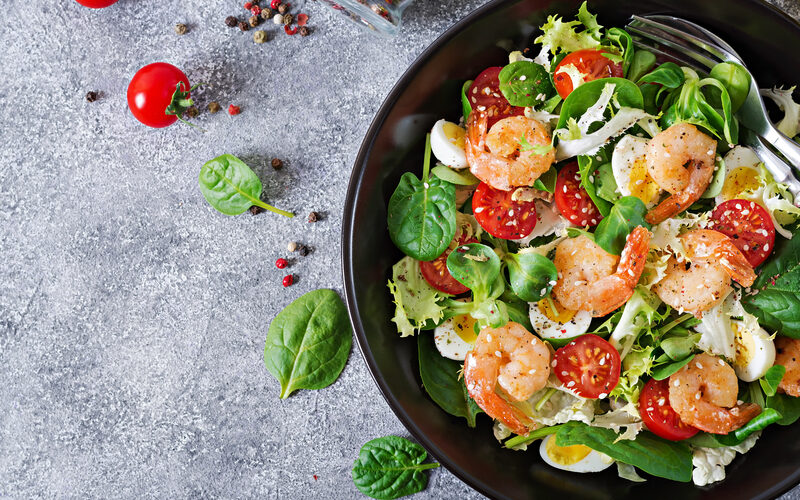Salads can be a delicious and nutritious meal option, but they often leave us feeling unsatisfied or hungry soon after eating. Creating a healthier and more filling salad involves incorporating a variety of vegetables, lean proteins, and healthy fats that provide essential nutrients and keep you feeling full for longer.
Add Healthy Fats
Including healthy fats in your salad not only adds flavor and texture but also helps your body absorb fat-soluble vitamins and minerals found in the vegetables. Some excellent sources of healthy fats to incorporate into your salad include avocados, nuts, seeds, and olive oil. Avocado adds creaminess to your salad, while nuts and seeds contribute a satisfying crunch. Using a high-quality, cold-pressed olive oil in your salad dressing is another excellent way to incorporate healthy fats. Olive oil is rich in monounsaturated fats, which have been shown to improve heart health and reduce inflammation.
Use a Variety of Vegetables
Incorporating a diverse range of vegetables in your salad not only adds color and flavor but also provides essential nutrients and antioxidants for optimal health. Kale can provide you with a great source of critical nutrients like calcium and vitamin B. Spinach, arugula, and mixed greens are other nutrient-dense options for your salad base. Adding an assortment of colorful vegetables, such as bell peppers, cucumbers, tomatoes, and carrots, will provide a variety of vitamins, minerals, and phytonutrients. Additionally, including cruciferous vegetables like broccoli or cauliflower can boost your salad’s nutritional value and fiber content, further promoting a feeling of fullness.
Add Lean Protein
Incorporating lean protein into your salad is crucial for creating a satisfying and filling meal. Protein is essential for building and repairing body tissues and can help you stay full for longer periods, preventing overeating or snacking on unhealthy options. Some excellent lean protein options for your salad include grilled chicken, turkey, tofu, or tempeh. For a vegetarian or vegan alternative, you can add beans, chickpeas, or lentils to your salad for a satisfying protein source.
Fish, such as salmon or tuna, can also be a delicious and nutritious addition to your salad. These types of fish are rich in omega-3 fatty acids, which have been linked to numerous health benefits, including improved heart health and reduced inflammation.
Creating a healthier and filling salad is a simple and delicious way to nourish your body with essential nutrients while enjoying a satisfying meal. By incorporating healthy fats, using a variety of vegetables, and adding lean protein, you can build a well-rounded and satisfying salad that will leave you feeling full and energized. Enjoy experimenting with different combinations of ingredients to find the perfect salad that meets your nutritional needs and taste preferences.
Check out this article on why you should avoid sugary foods in your diet





